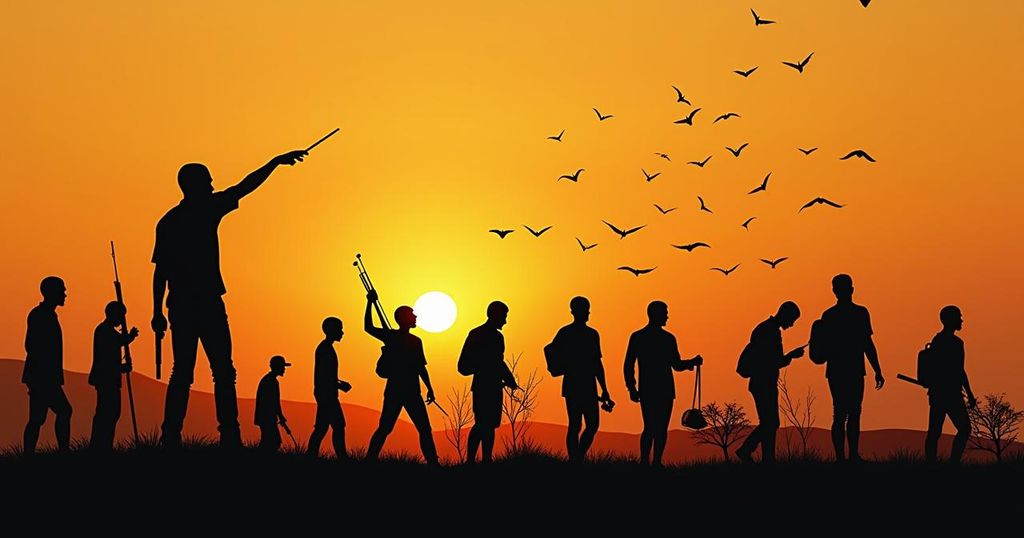Mozambique is facing crucial elections on October 9, 2024, amidst a jihadist insurgency in Cabo Delgado and severe drought-induced hunger affecting millions. Approximately 17 million voters will choose a new president as current president Filipe Nyusi steps down after two terms. Candidates have promised to prioritize the resolution of violence in the north and address rampant poverty and corruption. Recent local allegations of electoral fraud raise concerns about the upcoming elections’ integrity.
As Mozambique approaches its pivotal elections, scheduled for October 9, 2024, the nation confronts significant challenges, including a persistent jihadist insurgency in the northern province of Cabo Delgado and widespread drought-induced hunger affecting millions. Approximately 17 million voters are set to cast their ballots for a new president, as current president Filipe Nyusi, who has served two terms, is not eligible for re-election. During the six-week campaign period, candidates have vocalized their intentions to prioritize the resolution of violence in the north. However, specific strategies to address the situation have yet to be articulated. The region has been under siege from an Islamic State-affiliated group that has instigated violence against local communities since 2017, resulting in substantial displacement—around 1.3 million individuals forced to flee their homes—and devastation of local infrastructure. As the election nears, the frontrunners have concluded their campaign efforts, focusing particularly on the northern and central regions, known for their high voter turnout. Daniel Chapo, the candidate from the ruling Front for the Liberation of Mozambique (Frelimo), emphasized the need for peace in Cabo Delgado to facilitate infrastructure rebuilding. Conversely, Lutero Simango of the Democratic Movement of Mozambique campaigned on issues such as healthcare shortages and high unemployment rates, pressing for immediate solutions. Independent candidate Venacio Mondlane also reiterated a commitment to eradicate violence, assuring his supporters that, “From the moment my government is in place, I can assure you that kidnappings happening in the country, including terrorism in Cabo Delgado, will be wiped out in one year.” Additionally, the alarming rates of poverty and corruption, including the notorious “tuna bond” scandal that resulted in hidden debts and financial ruin, have become focal issues this election cycle. The United Nations World Food Program has highlighted the dire conditions, indicating that 1.3 million people are now facing severe food shortages due to the ongoing drought exacerbated by El Niño effects. As international observers prepare to monitor the election, previous local elections marred by fraud allegations have cast doubt on the electoral integrity. Analysts believe that the incoming president will inherit a multifaceted crisis marked by violence, economic struggles, and a pressing need for reform.
Mozambique is currently grappling with a jihadist insurgency primarily in the Cabo Delgado province, which has led to violent attacks and a humanitarian crisis involving mass displacement of civilians and destruction of communities. The insurgency, linked to Islamic State groups, escalated in 2017, creating a conducive environment for poverty and hunger to proliferate, worsened by recent droughts. The upcoming elections are set against this backdrop, with 17 million eligible voters preparing to choose a new leader in light of the current president’s term limit. The context of corruption scandals further complicates the political landscape, affecting public trust and expectations from candidates.
The upcoming elections in Mozambique represent a critical moment as the country seeks to navigate the dual threats of an insurgency and humanitarian crisis. With key candidates vying to address these pressing issues, the election results will be crucial for the nation’s stability and future development. The effectiveness of newly elected leadership in delivering peace and addressing systemic corruption will determine Mozambique’s trajectory in the years to come.
Original Source: apnews.com






